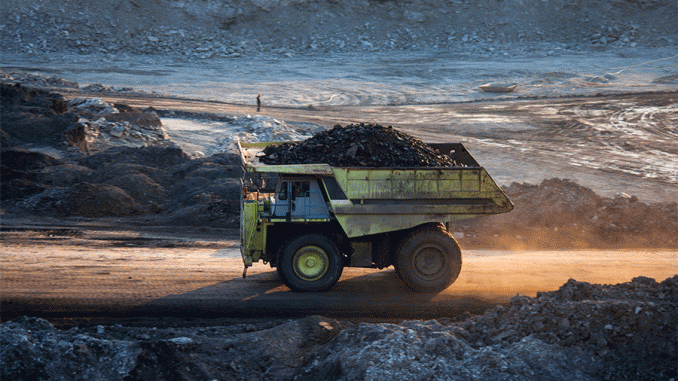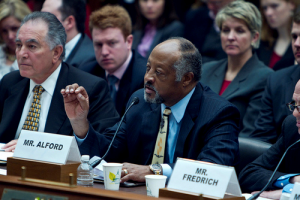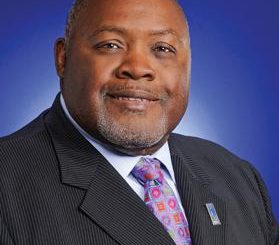
By Quin Hillyer,
Urban News Service
Thousands of black coal miners, truck drivers and factory workers will lose their jobs as new clean air regulations take effect, says Harry Alford, president of the National Black Chamber of Commerce.
These new rules, which President Barack Obama announced in August with fanfare, require that carbon dioxide emissions be cut nationwide by more than 25 per cent over the next 10 years.
The regulations from the Environmental Protection Agency (EPA) “would impose severe and disproportionate economic burdens on poor families, especially minorities,” Alford said at an Oct. 6 hearing of the U.S. Senate Judiciary Subcommittee on Oversight. “The proposed rule would impose the most harm on residents of seven states with the highest concentrations of blacks and Hispanics.”
Many business leaders say the rules will destroy jobs for two reasons.
First, they allegedly will make it very costly for coal plants to operate, and closing those plants will eliminate jobs.
Second, according to Alford, these executives say that the cost of complying with the rules will drive up energy prices, making it harder for black-owned small businesses to survive.
White House officials deny that the rules will raise energy costs or eliminate jobs while contending that minority neighborhoods would benefit from better health and cleaner air.
“Climate change hurts those Americans the most, who are the most vulnerable,” Obama said on Aug. 3, when announcing the initiative. “Today, an African-American child is more than twice as likely to be hospitalized from asthma; a Latino child is 40 percent more likely to die from asthma. So if you care about low-income, minority communities, start protecting the air that they breathe, and stop trying to rob them of their health care.”
The national media have noticed this disagreement between black business leaders and the first black president – and made several assumptions that some critics call prejudicial. Washington Post reporter Joby Warrick called it “unlikely” and “odd” that a black business group would join most other industry advocates in opposing the regulations.
In response, Khalil Abdullah, the former executive director of the National Black Caucus of State Legislators, wrote a column for TriceEdneyWire.com that chided Warrick’s Sept. 28 article for expressing “the absurd and offensive implication … that it is somehow odd that an African-American business group would support the interests of businesses. The Washington Post thus demonstrates a kind of twisted double standard.”
The battle over the regulations is a standard one between industry and environmentalists, Abdullah argued. “The hue of [Alford’s] skin,” he wrote “has nothing to do” with whether his position – and those of other business leaders and elected officials, both black and white – is somehow suspect or odd.
Notwithstanding The Washington Post’s coverage, the question is whether the clean-air benefits of the rules, as supporters claim, are worth lost jobs and foregone prosperity, as critics warn. Since some members of the community value prosperity more than regulation, different positions emerge.
Under questioning before the House science committee in July, EPA Chief Administrator Gina McCarthy acknowledged that the EPA’s own analysis shows that the new rules would reduce world average-temperature growth by less than two one-hundredths of a degree Fahrenheit by 2050. Two one-hundredths of a degree may be difficult to notice when daytime temperatures often fluctuate by 10 degrees or more.
McCarthy believes the new regulations will produce a global movement on climate change. By taking action in the United States, America’s example “can actually trigger global action to address” climate change, she said, even if such action itself will produce only minor direct benefits for the climate. So far, China, India, and Russia – respectively, the world’s first, third, and fourth largest carbon-dioxide producers (America is second) – have adopted significant anti-global-warming laws. However, some experts contend that their compliance with these measures will yield to their aspirations for economic growth.
Alford testified that the Clean Power Plan’s benefits don’t match the program’s costs. He cited a study sponsored by the National Black Chamber of Commerce that found that these rules would increase black poverty by 23 percent and Hispanic poverty by 26 percent, and eliminate seven million jobs among blacks and 12 million positions among Hispanics. “The EPA regulations will impact minorities disproportionately,” according to the Chamber’s report, because energy costs devour a higher percentage of minority paychecks.
Blacks and Hispanics will pay more for power, heat and air conditioning, while businesses, also suffering from higher power costs, will slash jobs to compensate for these losses, the report said. The new rules would require cutting carbon-dioxide emissions to the level that existed in 1983, when 88 million fewer people lived in the United States than today.
Electricity might fail when EPA rules take effect, and long-time coal-fired plants are taken offline, according to the Southwest Power Pool, a nonprofit organization certified by the Federal Energy Regulatory Commission to safeguard America’s electricity infrastructure. The rules are so strict that “the power grid would suffer extreme reactive deficiencies,” the Pool says, including “cascading outages and voltage collapse,” As power plants are padlocked, the Pool finds, the stress on the electricity grid increases.

“What is so unusual about worrying about the energy supply for people of little income, who can’t afford higher energy costs?” Alford said. “That is so bigoted, saying that a black person cannot think and debate about key issues. What the hell is going on here?”
Alford also questioned the president’s claim (from his Aug. 3 announcement) that climate change and ozone levels disproportionately affect minority communities, and that asthma and ozone levels rise and fall in tandem.
“That’s another myth,” Alford said. “They [the Obama administration] are referring to asthma, as if asthma has a correlation to ozone. There is no correlation between ozone and asthma. Ozone has been going down every year for a number of years, while asthma has continued to rise.”
Obama dismissed the notion that the new regulations would cause economic harm, pointing out in an Aug. 3 speech that businesses always predict bad outcomes from costly regulations. “The same characters who are going to be criticizing this plan were saying [in prior years], this is going to kill jobs, this is going to destroy businesses, this is going to hurt low-income people, it’s going to be wildly expensive. And each time, they were wrong. … They underestimate American business and American ingenuity.”

